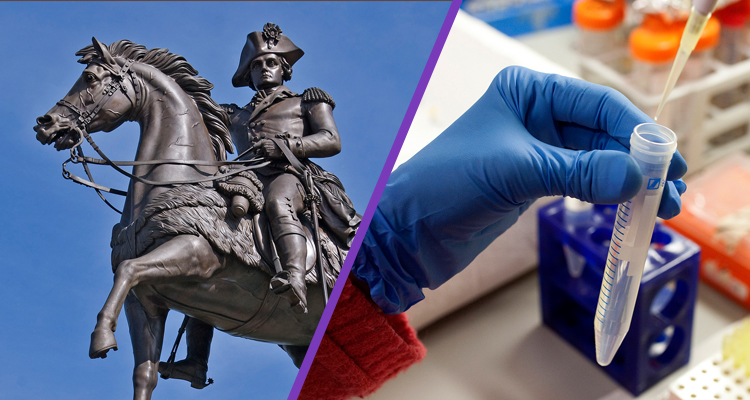Educational experts suggest high-achieving students most enjoy classes and projects they can dive into, head-on, uncovering material that is of interest and encourages them to discover even more. That kind of self-direction is an important element of the K12 online program, which offers not only challenging content but ways to go beyond standard course material.
“Those students need opportunities to engage with challenging content and complex learning activities,” says Melissa King, director of early learning and product advancement for K12. “Most enjoy being immersed in topics and thrive on the in-depth learning experiences that allow them to seek out resources and manage their own engagement.”
When asked via social media about their favorite courses and learning experiences, K12 students offer dozens of responses covering a wide spectrum—everything from math and vocabulary to electives like photography and advertising.
Social studies, including history and geography, received the most favorable responses among students and parents, receiving top votes from more than 30 percent of respondents. Science was next at 24 percent with language arts (including writing and vocabulary classes) third at slightly more than 20 percent.
“Our history courses include links to dynamic digital resources, such as historical documents, historical sites, museums, and websites with engaging activities,” King says. “In grades K–4 there are ‘reading rooms,’ where students can find fictional stories related to specific historical events or periods. Students can read or listen to audio versions of these stories that contain readings which are often above grade level.”
Similar multimedia experiences and challenges are found in K12 subjects across the board.
“Both hands-on and virtual labs are offered in high school science courses and are excellent mechanisms to engage students who enjoy the challenge of investigations, some of which may not have strictly defined answers,” King says. “Optional lessons are part of K–8 science courses. In grades 3–8, our math courses include extended problems, which involve richer, more open-ended problem-solving experiences. In English and language arts, up to 20 optional lessons go beyond required content in grades K–5—and for fourth and fifth graders, there are optional writing lessons and additional reading selections.
“The Honors Track is available for all core courses at the high school level. Learning experiences include content from the comprehensive course, plus special projects that require students to complete investigations and projects of their own design.”
Projects can be particularly useful in keeping students actively involved in the investigation of subject matter or developing real-time solutions to real-world problems.
“Project-based learning is a natural mechanism to encourage students to ‘go deep’ as they focus intently,” King says. “Investigations and projects that involve open-ended problem solving foster creative thinking. Long-term projects, such as optional science fairs, engage students over a period of time, help sustain focus, and develop persistence.”
When asked why certain classes were their favorites, students and parents repeatedly mentioned projects, hands-on experiences, and interactive lessons. Videos and games were, not surprisingly, a hit. Some said that particular teachers and their ability to establish a nurturing relationship with their student, made the difference for them.
Here are some of the more revealing comments:
Jennifer A.: “My kids love all the interactive lessons that go along with phonics, math, spelling, vocabulary. I love the history lessons!”
Liz T.: “My first grade son loves history. My kindergarten son loves art. My three-year-old loves learning right alongside his brothers!”
Christina H.: “My kindergartner loved the countries studied in history. Now, she’s working on first grade history and loves learning about ancient times!”
Kim J.: “My daughter is really enjoying photography. Who knew?”
Cassie H.: “My son, who is in first grade, loves doing science experiments. He wants to do them all the time.”
Teresa P.: “I wasn’t always convinced about PhonicsWorks, but now I have an excellent reader. We also love history and the related art projects.”
Ann W.: “By far, the advertising graded assignment has been the best project from my sixth grade daughter—and she got a score of 98 percent. Woohoo!”
Tina S.: “My daughter loves anything that is interactive, like the reading room.”
Missy Ann: “My daughters loves the writing projects. . . . Our family loves K12.”
Stephanie J.: “My child likes history the best. He likes the interactive games and stories that are in the lessons.”
Jessica R.: “Science has interesting lessons about taxonomy of plants, cell processes, oceans, and the earth’s atmosphere. . . . I like vocabulary, space adventure and (the) unit review game.”
Becky K.: “My son loves going into breakout rooms. He loves being able to talk to another student while they work. . . . History is his favorite. He loved every minute of it. He really liked to do all the hands-on drawing and sculpting with clay.”
Does your student need more in the way of self-direction or challenge? K12 can help tailor a program designed to get the most out of each school day and the learning experience. Receive more information or contact a K12 representative today.
Featured Images – Ron Cogswell & Vall d’Hebron Institut de Recerca VHIR / CC by 2.0




































